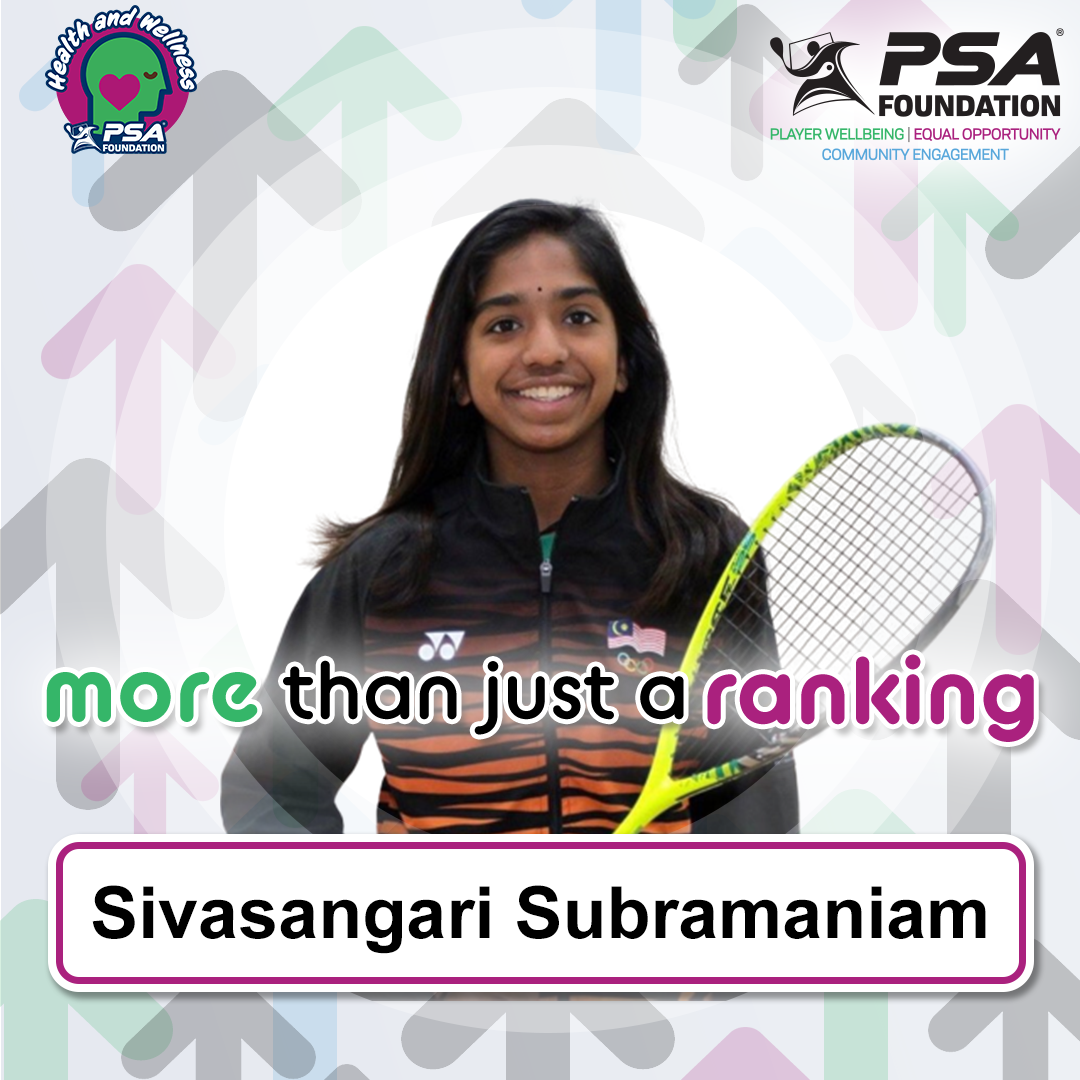Introducing More Than Just A Ranking: a series where we get a personal insight into squash players about more than just who they are on court.
We spoke to Sivasangari Subramaniam, who made her official return to court recently after a traffic accident put her career on hold.
Seven months on from a career-threatening car crash, Malaysian No.1 Sivasangari Subramaniam is miraculously close to a return to the tour.
In June 2022, the 24-year-old, who had recently risen to a career-best ranking of World No.16 and was set to lead her nation out as a flagbearer at the Birmingham Commonwealth Games, was travelling with a friend near Kuala Lumpur when their car was struck by another vehicle.
“We were just unlucky. I got hit more than my friend and had some serious injuries,” Subramaniam says of the accident.
The severe injuries to her face and, more dangerously, in her neck, initially caused worries that the Malaysian would never play again.
However, after two surgeries in two weeks, the prognosis was more positive and Subramaniam was presented with a choice: undergo one more operation on her neck, which would likely prove successful but could cause lasting mobility issues, or manage the pain and try to let the injury heal naturally.
Subramaniam opted for the second option.
The result was months of wearing cumbersome collars, which kept her neck rigidly in place as her body began to repair itself.
While this helped Subramaniam’s neck to heal, it also meant that even the most simple of tasks were impossible without help.
“It was really tough, mentally. I could do things like go for a walk by myself, but with the neck brace, I always needed someone to just look out for me and be there. My mum was showering me, I couldn’t do much because I couldn’t move my neck at all.”
Despite the pain and frustration of the collars – first a hard brace for one-and-a-half months and then a softer one for another month – Subramaniam’s focus on her return never wavered.
“Even in the hospital in the second week, I just couldn’t stay in bed. It was so tough because it’s just not what I do, just hanging out bed.
“In the fourth week, I went to the Sports Institute and asked them if I could just start some rehab or do some exercises. And since then, even with the neck collar, I was just going in and doing some exercises because I didn’t have any injuries on my legs and hands. So I could do lightweight stuff.
“And then I was slowly, gradually [recovering], but the physio was really important. So I kept on going for my physio sessions every day. But the physio only started after two-and-a-half months because I could only do physio after the collar was off.
The Malaysian No.1 adds that the support of the squash community was a huge morale-boost, particularly during the first few months with the collars.
“It was very touching for me because when the accident happened, I lost my phone, I lost everything. So I couldn’t [hear from] people reaching out. And then, two days later, I borrowed my friend’s phone as she has an extra one that she gave to me; then I got lots of messages.
“It was shocking news for me. I was overwhelmed but really grateful to have these kind of people around me and wishing me a speedy recovery. I was very touched.
“I just want to thank so many people around the world who sent me so many messages and reaching out to me asking me how am I doing and all these things. It does mean a lot to me because I’d never been in that situation before. And now you realise that there’s a lot of people caring for you.
In the six months since fracturing bones in her neck and face, Subramaniam’s recovery has been remarkable. Earlier this month, the 24-year-old returned to the court for the first time for Cornell University, where she is in her final semester.
Perhaps even more impressively, the Malaysian has already a set date for a return to the tour. On February 23rd, Subramaniam will play in the second round of the Bronze-level Squash On Fire Open in Washington, D.C., in what will be her first PSA World Tour match since the quarter-final of the El Gouna International on 01 June 2022.
“For me, it’s the little progress I make every day that keeps me going. It’s hard at times, like at the Malaysian Open, it’s frustrating to watch. I’m still grateful to be here watching, but at the same time I wish I was playing so it’s a bit tough. This recovery journey is really an up and down kind of thing.
“I think the little progress and just seeing all the players on tour playing as well just keeps me motivated.”
Watch the full interview with Sivasangari Subramaniam on SQUASH.TV.





